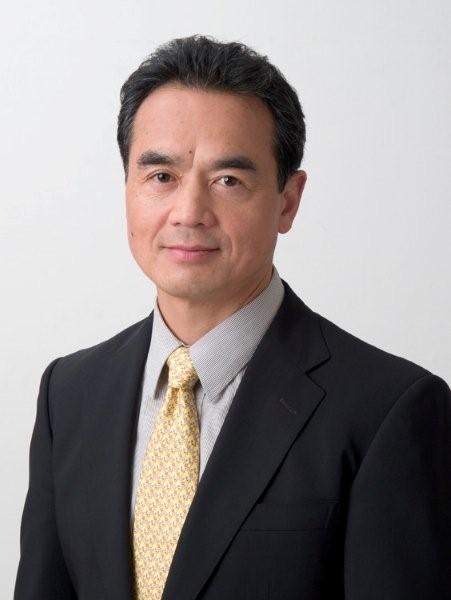Publisher's Message | 発行人からのメッセージ
Culture Defines Branding | 文化はブランディングを定義します
Yoshiharu Matsui, Ed.D., MBA, Chief Community Officer, The Japan HR Society (JHRS) |
松井義治(ヨシ) Ed.D., MBA, The Japan HR Societyチーフ・コミュニティー・オフィサー
Marketing and sales divisions lead branding activities for a company’s products and services. So what is it that the HR division leads? | さて、マーケティングや営業部門は会社の商品やサービスのブランディングをリードしています。では、人事部門がリードしているものは何でしょうか?
Translated from Japanese original What is the greatest contribution that the HR department can make to the company? Different HR divisions have specific contributions: The hiring group hires good people, the learning and development (L&D) group enhances employee capabilities, and the compensation and benefits (C&B) group creates competitive remuneration. Companies that are able to expand their business over the long term do not just have excellent products and services; they also have a robust company culture that sustains growth. I believe that the greatest contribution HR can make is establishing and strengthening the company culture. Conversely, a company whose culture is weak or fragmented will experience unnecessary problems including recalls from the concealment of product defects, power harassment, and higher rates of taking sick leave. In today’s competitive and fast-changing world, products and services (brands) are coming and going at a faster rate. In a similar vein, advances in technology are predicted to result in more than 40 percent of current U.S. jobs disappearing in the next 10 years. In this environment of volatility, uncertainty, complexity and ambiguity (VUCA), companies absolutely need to have employees who think and act for themselves and work together to reach the company’s goals – in other words, a robust company culture. In addition to the specialized skills of HR, technology-driven marketing activities are also indispensable to building this company culture as well as establishing the company brand. Marketing is about offering in the best way possible company products and services that provide added value to the market (stakeholders). This approach is not a product-led approach (where a product is made and then a market is found for it) but a market-led approach (where products and services that satisfy market needs are offered). Put in terms of HR, we should not be pushing programs or systems with a product-led orientation, but should offer the company innovative programs that are highly anticipated by the employees and management. With this understanding, the HR division must make clear what the ideal corporate culture is and what mindset, conduct and characteristics employees need to have so as to enable the organization’s future growth. This is directly tied to the mission of HR. To establish the company’s brand, each HR team conducts marketing-oriented HR activities that meet the needs of the market, the management and employees while collaborating and aligning their work with the other HR divisions. In my own experience, the HR theme at one of my previous employers was “People at Peak.” All of the HR divisions focused on this theme and implemented activities accordingly. The progress of these activities was not simply measured by productivity (i.e., sales per employee) or the retention rate. We also measured progress using an employee awareness survey to evaluate engagement and the company culture. I hope that this issue provides you with useful insights into corporate branding at your company. |
英語と合わせ日本語で出稿
会社にとって最高の人事部門の貢献は何でしょうか? 採用グループがよい人材を採用する、L&D(人材開発)グループが社員の能力を強化する、C&B(給与と福利厚生=トータルリウォード)が競争力のある処遇を築く、などのグループ毎の貢献もあります。長期にわたってビジネスを伸ばし続ける企業には、単にすばらしい製品とサービスだけでなく、成長し続ける強い企業文化があります。私は企業文化の強化と確立こそが、人事として最高の貢献だと確信しています。逆に、弱い、且つバラバラな企業文化では欠陥商品の隠蔽からくるリコールやパワハラや病欠などの無駄な問題が生じています。 変化の激しい現在の競争社会において製品やサービス(ブランド)がドンドン入れ替わっています。同様に、テクノロジーの進化により、米国では現在ある職務の4割以上は10年で消滅すると予測されています。このようなVUCA環境の中、会社は自ら考え、行 動し、協働して企業ゴールを達成していく社員、即ち、強い企業文化が必要です。企業文化を築くには、人事の専門能力に加えて、企業ブランドの確立と共に、テクノロジーも活用したマーケティング活動が不可欠です。 変化の激しい現在の競争社会において製品やサービス(ブランド)がドンドン入れ替わっています。同様に、テクノロジーの進化により、米国では現在ある職務の4割以上は10年で消滅すると予測されています。このようなVUCA環境の中、会社は自ら考え、行 動し、協働して企業ゴールを達成していく社員、即ち、強い企業文化が必要です。企業文化を築くには、人事の専門能力に加えて、企業ブランドの確立と共に、テクノロジーも活用したマーケティング活動が不可欠です。 ということで、人事部門は、将来組織が成長し続けるために、理想的な企業文化は何か、どのようなマインドと行動特性を持つ社員が必要なのかを明確にしなくてはなりません。それは人事のミッションに直結します。その企業ブランドを確立するために、各人事チームがアラインメントをとり、協働しながら、市場・経営・社員のニーズを満たすマーケティング的な人事活動を実行するのです。ちなみに、前職2社目の当時の人事のテーマは「People at Peak(すべての社員は最高に状況にある)」でした。すべての人事グループはそこに焦点を定めて、活動していました。活動の進捗は、単に生産性(社員一人当たりの売り上げ)や離職率だけでな く、社員意識調査も使って、エンゲージメント度合いや企業文化を通して確認していました。 本号が皆さんの会社の企業ブランディングの確立の一助となれますことを期待しています。 松井義治 |
***
|
TELL US WHAT YOU THINK:






